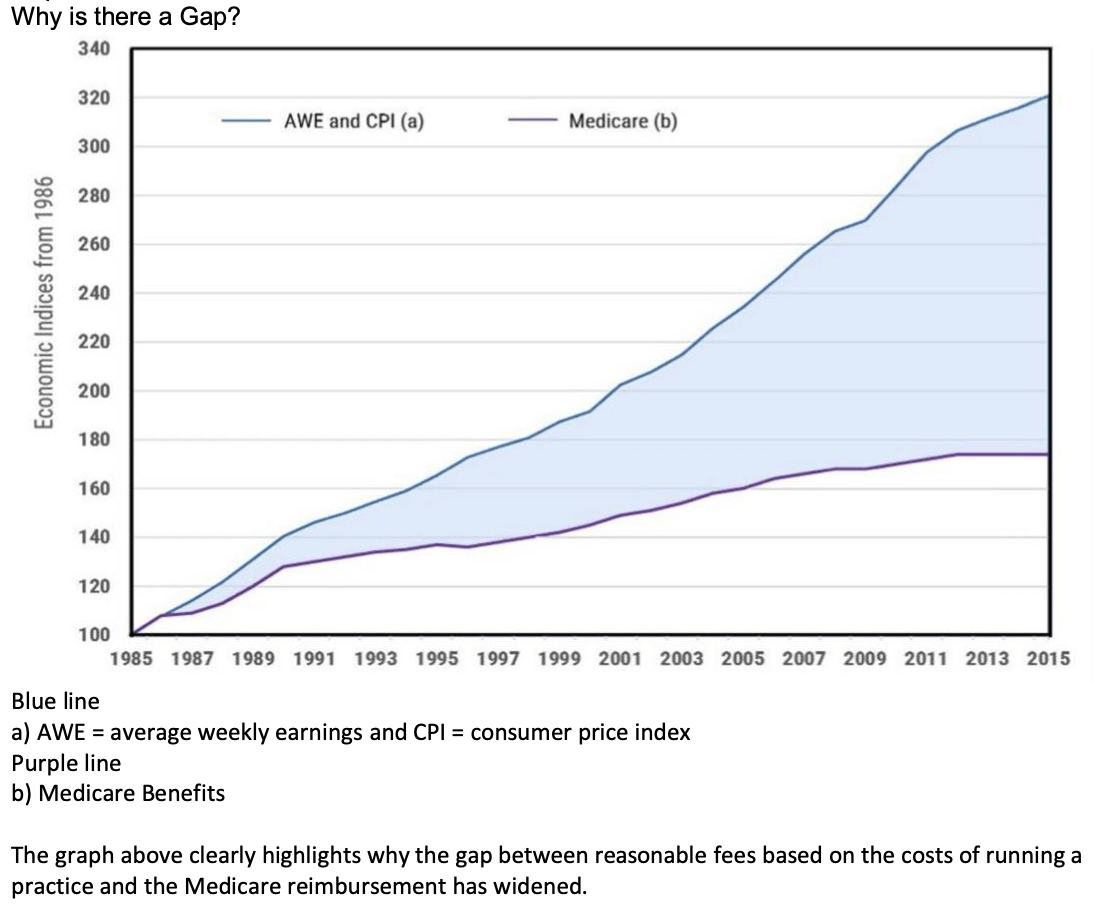Our practice treats private fee patients.
If you choose to be treated as a private patient you will be able to:
- choose your own treating specialist, and
- be treated at hospitals that our doctor is affiliated to or is a visiting medical specialist,
After discharge, your care and follow up appointments will be carried out by your specialist and team in either
- an outpatient clinic or in our private rooms, or
- will be referred to your local general practitioner.
As a private patient our surgeon will perform your surgery personally and will also look after you if you are advised to be an in-patient. All follow up appointments will be in our private rooms.
We offer informed financial consent to all our patients prior to surgery. This is a pre-treatment estimate of your surgical costs.
While the fees charged may depend on the specific course of treatment, our practice's standard fees are in line with the Australian Medical Association recommended fee schedule. This means that in most instances there will be a ‘gap’ between our surgical fee and what is covered by Medicare and your health insurance fund.
The pre-treatment fee estimate includes the specific item numbers to be used and enables you to discuss with your health insurance company what you are covered for and if benefits are applicable.
If there is any problem with either the fee estimate or any other billing issue, it is important that you ask our staff. They can help you navigate what can be a complex process by either advising and helping explain the charges and rebate structure.
Our practice fees for either Consulting or Surgery may sometimes only be part of your treatment cost.
Other possible fees or disbursements involved in your care are dependant on which course of action is chosen for your treatment. You may need to also check with your health fund to see what is covered for additional areas of service. Potential fee categories to be sure of can include:
- Hospital Fees,
- Surgical Assistant Fees,
- Implants or Prosthesis Costs,
- Anaesthetists Fees,
- Diagnostic Tests (Radiology, Pathology), and
- Post-Operative Care.
The medical fee rebate system in Australia is complex. A set of fees for medical services is determined by the Federal Government and known as the Medicare Benefits Schedule (MBS). Most procedures involved in your treatment will have a MBS “item number” and the Government sets a Medicare Benefits Schedule (MBS) fee for each item number.
The MBS fee is used to work out how much Medicare will pay. Medicare pays a benefit of 75% of the MBS fee for in-hospital treatment and 85% of the MBS fee for out-of-hospital services. MBS fees are not the fees doctors charge, they are fees set by the government to manage the benefits paid by Medicare.
Surgeons are free to set their own fee for the services, these are also governed by the The Competition and Consumer Act 2010 but are under no obligation to charge fees that are equal to the Medicare Benefits Schedule (MBS) fee or the schedules of medical benefits set by private health insurers.
Our fees not only take into account the professional fees but many other factors including practice staff, office expenses, operating expenses, medical registration, compulsory professional association subscriptions, professional indemnity insurance and many other elements. These cost can vary significantly, yet the Medicare rebates are identical irrespective of the practice running costs.
In our practice specialty, prompt communication with the referring general practitioners is vital, and prompt responses, with high staff levels is a major benefit to patient care, but also adds cost.
Surgeons should satisfy themselves in each individual case as to a fair and reasonable fee having regard to their own costs and the particular circumstances of the case and the patient.
The same operative procedure can vary enormously in both complexity and operating time between individual patients, and as such there may be significant variations in the operation fee for the same procedure, depending on the individual circumstances. For this reason sometimes it may not be possible for us to provide estimates for operative procedures over the phone prior to a clinical consultation.










